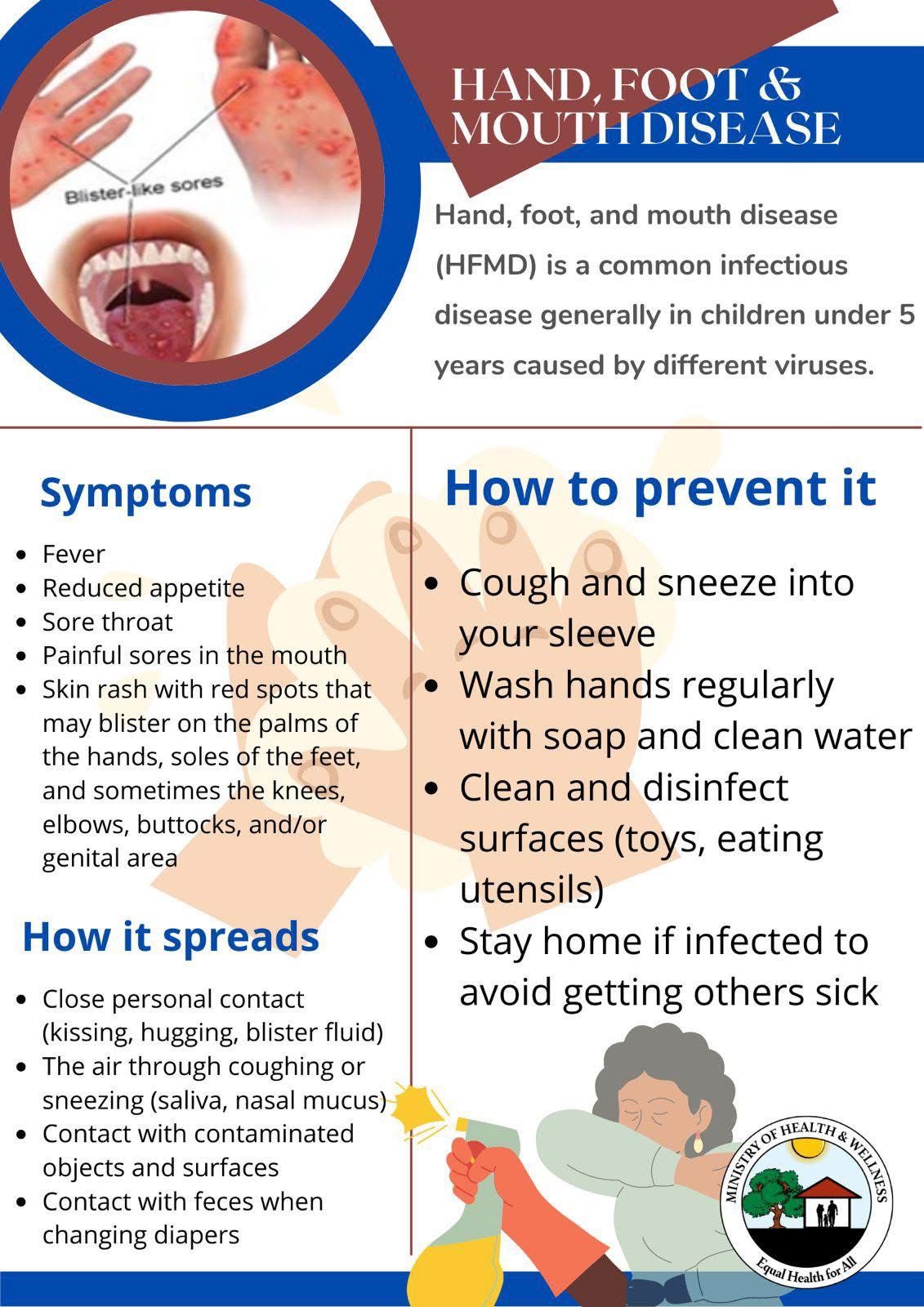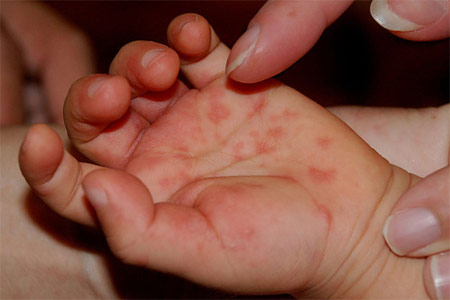Health authorities are reporting an increase in cases of hand, foot, and mouth disease (HFMD) across Belize, particularly among children under five years old. Clinics on both the mainland and islands have confirmed numerous infections, prompting advisories from medical professionals.
HFMD is a viral illness, commonly caused by the Coxsackievirus, and is characterized by fever, painful mouth sores, and red rashes that can develop into blisters on the hands and feet. The infection spreads easily through close contact, especially among young children in schools and daycare centers.

“It’s a viral infection, meaning a virus causes the disease, most commonly the Coxsackievirus,” explained Dr. Paolo Ack in an interview on October 20th. “Children usually present with lesions on the mouth, hands, and feet that turn into blisters and can be very uncomfortable. Fever, loss of appetite, and general weakness are frequently reported.”
Dr. Ack noted that transmission occurs through coughing, sneezing, or contact with blister fluid and contaminated surfaces. “The virus is highly contagious among children four to five years old, especially when they share toys or are in close proximity,” he said.
The Ministry of Health and Wellness has advised parents and caregivers to practice regular handwashing, disinfect toys and utensils, and keep infected children at home to prevent further spread. “If parents notice symptoms such as fever, sore throat, or blisters, keep the child hydrated and manage discomfort with fever or pain medication,” Dr. Ack added. “Antibiotics are not needed, as it’s a viral illness. Most cases clear up within a week, but dehydration can become serious and should be treated promptly.”
Dr. Ack emphasized that good hygiene remains key to preventing infection. “If possible, keep the child out of school to minimize transmission. Chlorine-based cleaners can be used to disinfect surfaces, and adults should also maintain good hand hygiene, though infection in older individuals is rare.”
Health officials expect most cases to resolve without complications, but remain alert for rare severe outcomes, such as viral meningitis. Families are encouraged to stay calm, focus on hydration, and maintain strong hygiene habits. “The message for the public is not to panic,” Dr. Ack reassured. “If symptoms appear, keep your child comfortable, hydrated, and limit contact with others.”


